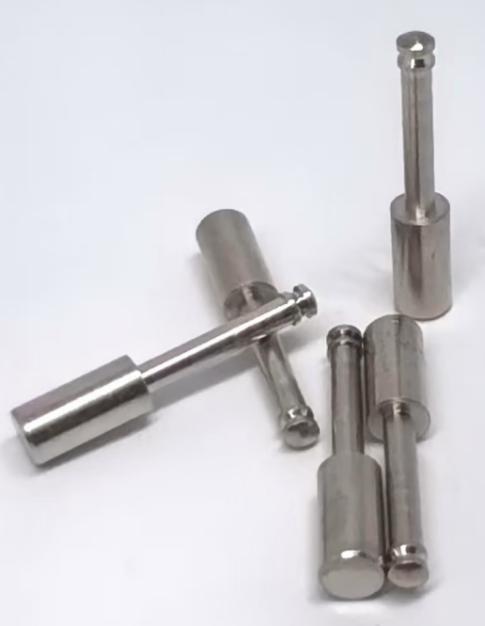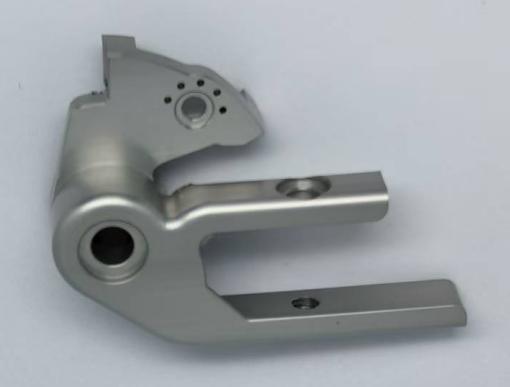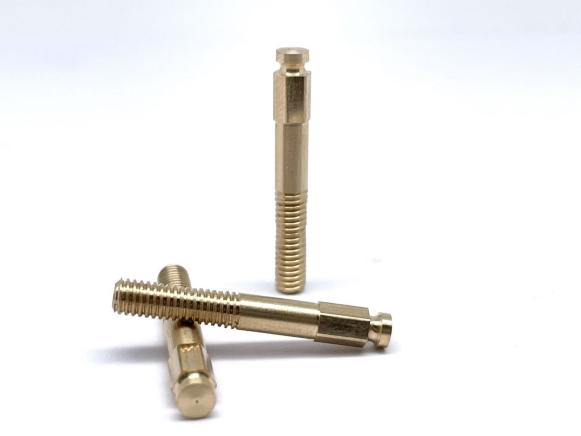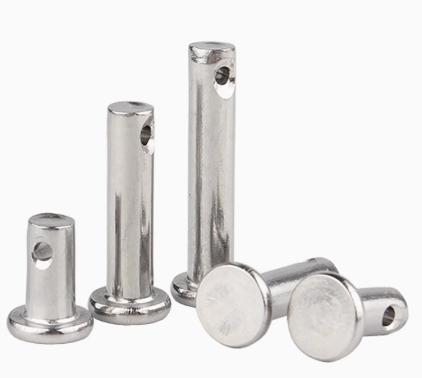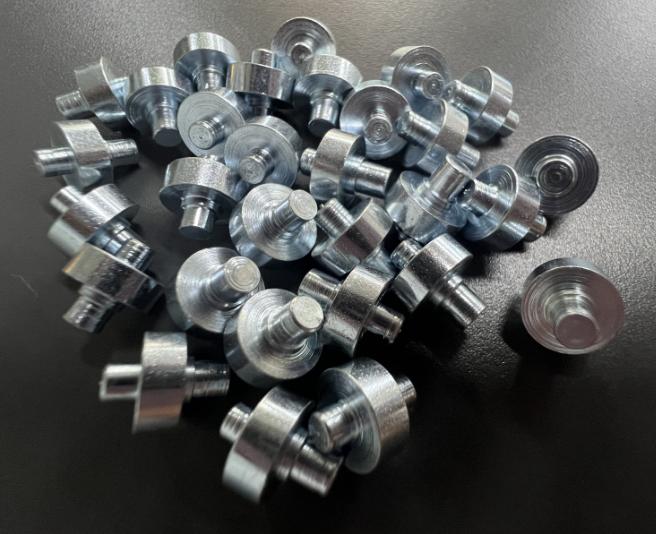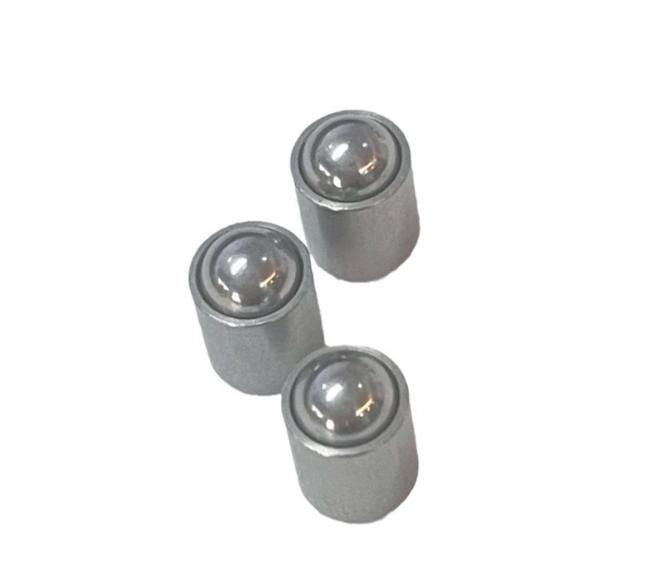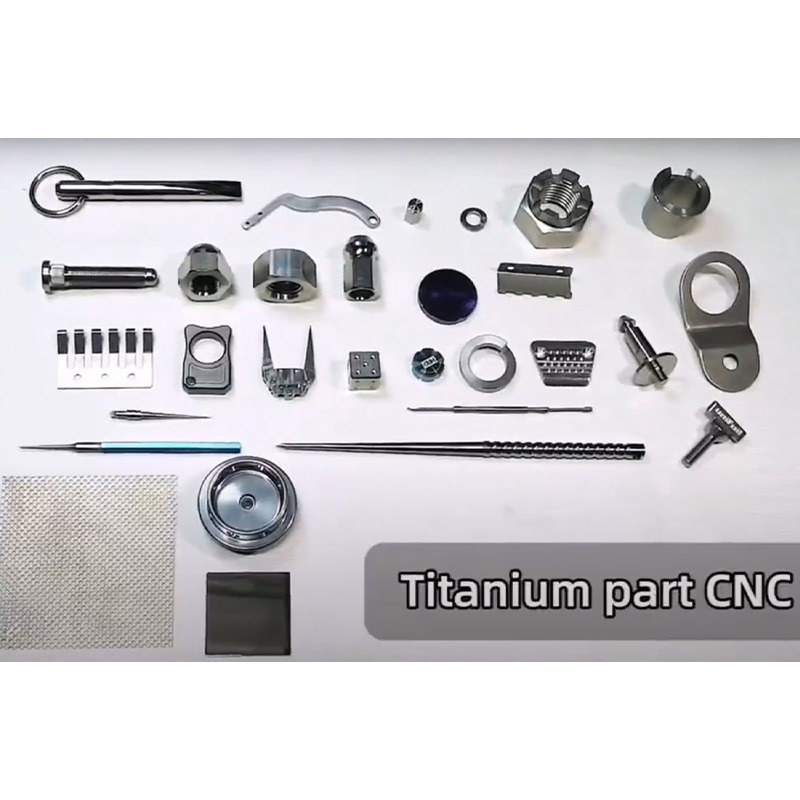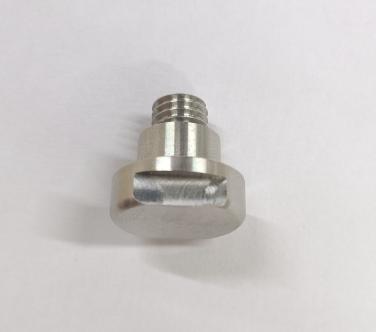The Use of CNC Machining for Aerospace Industry
Aerospace components play a pivotal role in flight performance and safety, demanding high strength, precision and lightweight design requirements from components. CNC (Computer Numerical Control) machining processes meet these rigorous specifications for aerospace parts.
In this post, we provide a comprehensive introduction to CNC machining in aerospace applications, discussing how to select an ideal supplier and partner.
Table of Contents
Part 1. What is CNC Machining Used for Aerospace Industry?
CNC Machining is an advanced manufacturing technique which uses computer-controlled machines for precision cutting, drilling and milling of metal or plastic parts. CNC’s key advantages are its high precision, automation and repeatability which make it particularly well-suited to aerospace production environments.
CNC Machining has become an integral component of aerospace industry production, in components like:
Aircraft Structural Parts
Frames, ribs, brackets and reinforcements that require both high strength and lightweight construction are often constructed of aluminum or titanium alloys for strength-to-weight ratio purposes.
Engine Components
Turbine blades, housings, nozzles and compressor rings which are subjected to high-temperature/high-pressure environments often comprised of heat-resistant alloys.
Hydraulic and Fuel System Parts
Valves, connectors, and manifolds which require pressure resistance and close tolerances for efficient fluid control.
Avionics Mounting Hardware
Precision brackets, panels, and enclosures that securely house sensitive electronic systems.
Landing Gear and Control System Components
Critical components like joints, actuators and supports that withstand heavy loading and repetitive stress are joints, actuators and supports.
Aerospace CNC machining requires advanced equipment and stringent quality standards due to its complexity, close tolerances and challenging materials. It serves as a crucial support service that enhances safety, performance and innovation of modern flight.

Part 2. Why is CNC Machining Appropriate for Aerospace Components?
Aerospace manufacturing requires extreme precision, material versatility, and repeatable quality – three attributes CNC machining excels at providing. No matter if it is one-off prototyping or large production runs; CNC offers speed, accuracy, and flexibility that meets aerospace industry technical and safety specifications. Here’s why CNC stands out in this field:
1. Excellent Dimensional Accuracy
CNC machines can reach tolerances of +-0.005mm or better, making them an excellent option for aerospace components that must fit precisely and operate reliably under extreme stress and thermal loading conditions.
2. Compatibility Between Materials
CNC machining can be used to process various aerospace-grade materials, such as:
Aluminum alloys (lightweight and corrosion-resistant), titanium alloys (high strength-to-weight ratio), Inconel or other nickel-based superalloys that resist heat and oxidation well as stainless steels are excellent choices.
With such flexibility comes the potential to maximize part performance without compromising machining efficiency or material integrity.
3. Consistency and Repeatability
Once created, a CNC program provides consistent parts in terms of shape, size and quality production across large batches – this level of consistency is essential in aerospace applications where any deviation can cause catastrophic safety risks.
4. Capability to Produce Complex Geometries
Multi-axis CNC machinery such as 5-axis machines allows for the machining of complex surfaces, internal geometries, and undercuts in one setup, eliminating multiple clamping operations and shortening production time while improving surface integrity, making them suitable for components like turbine blades, housings and mounting parts that feature complex shapes.

Part 3. Typical Aerospace CNC Machined Parts Applications
Some of the most common aerospace components manufactured through CNC machining are given below, all of which require precise design and meticulous production:
Aircraft Skin Fasteners
These components attach the aircraft’s outer skin panels. They must combine high strength with light weight in order to maintain structural integrity without adding to the weight.
Turbine Blades
Turbine blades in jet engines must withstand intense temperatures and pressures, necessitating tight tolerances with their heat-resistant superalloy construction, which requires precise and careful machining in order to preserve aerodynamic efficiency and ensure long term durability.
Engine Housings
Engine housings feature complex geometries that often are constructed out of high-temperature materials like Inconel or titanium. CNC machining ensures these complex parts meet stringent dimensions and surface finish requirements essential to engine performance and safety.
Landing Gear Components
Landing gear parts experience extreme impact loads during landing and takeoff, necessitating high mechanical strength, fatigue strength and dimensional stability for optimal operation – qualities achieved with precise CNC machining technology under quality control measures.
Instrument Panels and Structural Brackets
Avionics and other aircraft systems require highly precise components with close tolerances, precise dimensions, and clean surfaces to assemble reliably and perform properly in spite of vibration and stress.
CNC machining helps to produce aerospace components with high performance, quality, and safety requirements. All these components are evidence that CNC has a very big role in meeting the requirements.

Part 4. Materials Commonly Used for Aerospace CNC Machining
In order to meet the high corrosion resistance, lightness and heat resistance demanded by aerospace companies, certain advanced materials are typically utilized for CNC machining needs:
Aluminum Alloys (7075 and 6061)
Aluminum alloys were selected based on their high strength and low weight, thus being most suitable to aircraft structural components and fasteners. Additionally, the aluminum alloys also possess good machinability and cheap characteristics that ensure manufacturing effectiveness in aircraft production processes.
Titanium Alloys (Ti6Al4V)
Titanium alloys have high strength-to-weight ratio and corrosion resistance that see them have extensive use in engine components, fasteners and airframe components. Machining of these alloys, however, requires special cutting tools with closely controlled parameters to minimize tool wear and obtain precision machining results.
Stainless Steel Products (304 and 316)
Stainless steels are very tough and more resistant to heat, and are utilized in hydraulic, fuel, and mechanical system components needing hardness as well as corrosion resistance. Toughness requires hard tools with efficient machining processes for the best performance.
Inconel and Other High-Temperature Alloys
Super alloys based on nickel like Inconel provide strength of structure despite demanding temperature and corrosion and are thus key components for jet engine, exhaust and space propulsion systems. Machinable with advanced CNC machinery with controlled processes.
These materials enable aerospace part producers to produce and design parts with maximum strength, durability, and minimum weight that can endure flight stresses.

Part 5. Aerospace Part Precision and Surface Treatment Requirements
Tolerance Control
The aerospace components must maintain precise measurements so that they can perform safely under extreme conditions. General tolerance ranges from +0.005mm to +0.001mm, with critical or precision parts having even tighter tolerance controls of +0.01% or better to guarantee safe fitting and faultless performance in any scenario.
Surface Finish
The surface finish of aerospace parts directly affects aerodynamic performance and mechanical fit, and typically require surface roughness (Ra) between 0.4 to 1.6 mm to ensure fine finishes that reduce friction, wear and fatigue strength for better fatigue strength as well as leakproof seals or gapless assemblies.
Quality Certifications
Leading aerospace CNC machining suppliers implement rigorous quality management systems, such as:
AS9100: The aviation quality management standard — covers design, production and service processes within the aviation industry.
ISO 9001: A generic popular quality management certification ensuring process control and continuous improvement.
Material Inspection Reports: such as SGS testing and RoHS compliance, ensuring raw materials meet required chemical and environmental standards.

Part 6. How Can I Select Reliable Aerospace CNC Machining Suppliers?
A good CNC machining supplier is important for manufacturing and shipping aerospace parts within time. While searching for prospective suppliers, look for the following basic requirements:
Aerospace-Grade Certifications
Make sure your supplier is industry-certified with certifications such as AS9100 covering aerospace quality management system requirements and that they meet strict standards of designing, production, and quality check.
Advanced Machining Equipment
Make sure that your supplier has advanced CNC machines such as five-axis machining centers and high-speed processing machines to efficiently machine complex aerospace parts with precision accuracy, in a rush. Such advanced tools will provide uniform production.
Advanced Quality Inspection Capability
A reliable supplier should be able to provide detailed quality inspection reports, including data from:
- CMM (Coordinate Measuring Machines) to check dimensional accuracy
- Surface roughness testers for checking the finish quality
- Hardness testing to check material properties.
Experience Working with Aerospace or Military Customers
Vendors with experience working with aerospace or defense customers understand their unique requirements for documentation and secrecy, leading to smoother project progression and higher-quality outcomes.
Engineering Support and Customization Services.
An ideal partner should provide not only manufacturing but also custom development, engineering consultation, rapid prototyping or sample production services to enhance design optimization, quicken iterations times and timely resolve production-related issues.

Part 7. KENENG Capabilities in Aerospace CNC Machining
With years of experience in the aerospace industry, KENENG is capable of providing customers with high-quality, high-precision CNC machining services to ensure the smooth progress of your aerospace projects.
Our main advantages are:
Rich Material Processing Experience
We support high-precision machining of various aerospace-grade metals, including aluminum alloy, titanium alloy, stainless steel, and high-temperature alloy, with a guarantee of perfect matching between material performance and machining quality.
Advanced Machining Equipment
Several five-axis and four-axis high-speed machining centers with maximum strokes of 1270×508×635mm (3-axis machines) and 450×700×400mm (5-axis machines), and imported precision inspection equipment such as CMM and projectors for precise machining of complex parts and strict quality control.
Comprehensive Quality Management System
Certified to AS9100 and ISO9001, we implement rigorous quality control processes from incoming material inspection to finished product testing to guarantee that every product meets the highest aerospace industry standards.
Diverse Service Capabilities
Rapid prototyping, small batch customization, and mass production are provided to meet various customer needs. Complicated drawing analysis, structure optimization, and technical assistance are provided by our experienced engineering staff.
Efficient Response and Professional Service
We provide quick quotes within a business day and fast delivery with the shortest lead time of three business days. Additionally, we supply one-on-one online pre-sales and after-sales technical support 24/7 for convenient and smooth communication.

Summary
Aerospace CNC machining is the ultimate integration of high-tech material, precision equipment, and master craftsmanship. There is rigorous quality and reliability behind every screw and structural panel. Picking a trustworthy machining partner is the key to guaranteeing flight safety and product quality.
If you are interested in premium aerospace CNC machining services, please visit KENENG today for tailor-made solutions and quotes.

